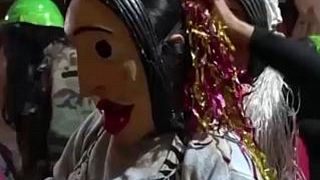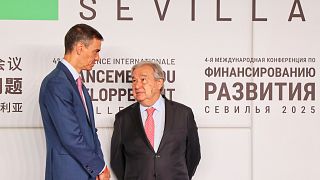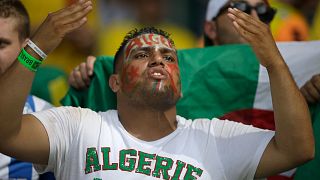Algeria
In the 60 years since Algeria won independence from France, the two nations have gone through multiple crises. Yet the two sides had surprisingly good relations for the first four decades, and it was only in the 1990s that things started to fall apart, experts say. Mohamed Mokrani a veteran of the war of independence looks back on the agreement that ended the war.
Mohamed Mokrani is a former member of the National Liberation Army. An Algerian group founded in 1954 to be the armed wing of the political party FLN. The National Front of Liberation party was one of the groups which demanded the end of France colonisation in the North African country.
Mokrani's veteran card is one of the many souvenirs that continue to tell the story of his resistance fighting years.
When the pensioneer looks at the photos, he looks back at the Évian agreements. These agreements cemented the end the Algerian War of Independence. Mohamed Mokrani remembers the day it took place as if it were yesterday.
"For us, soldiers, officers and commanders, March 19 was an ordinary day not worth mentioning, because we were still in an ongoing war, Mokrani says. Except that it gave the date of the referendum - July 3 - and the date of independence - July 5, 1962."
The Évian accords
On March 18, 1962, France and the Provisional Government of the Algerian Republic, the government-in-exile of the Algerian National Liberation Front (FLN), signed the agreement. It declared a ceasefire in Algeria and the organisation of a referendum on the future of the French "département".
However, the fights didn’t stop instantly after a 132-year French rule, and 8 years into the war of Independence. Mohamed Mokrani can’t forget the tense atmosphere which followed the ceasefire: "**A few days - two or three - after the cease-fire, orders were given at midnight to hit the French enemy's positions.**The military staff wanted to let the French enemy know that whatever they did, we had our finger on the trigger."
Historians say between half a million and 1.5 million civilians and fighters died.
Rocky relationship
Under French General Charles de Gaulle, whose administration signed the Evian accords, and his successor Georges Pompidou, Paris had good relations with Algiers.
The same was true of the administration of François Mitterrand, even though he had been interior minister when Algeria's armed independence struggle began in 1954 and remained opposed to the country's independence. But in 1992, Paris raised hackles by criticising Algiers for suspending elections, in which Islamist parties had won the first round.
If the time Mohamed Mokrani spent in Ghardimaou in Tunisia with other resistance fighters is long gone some things have not entirely changed. 60 years after Algeria won independence from France, the two nations still go through crises often fuelled by domestic politics.













01:02
Madgascar's President in Paris to discuss disputed Indian Ocean islets
01:09
United Kingdom backs Morocco's autonomy plan for Western Sahara
01:09
France and Algeria in deepening diplomatic crisis amid Tit-for-Tat expulsions
Go to video
Algeria commemorates thousands killed by French troops in 1945 massacres
Go to video
Moroccan boxer trades punches and patient care on path to Olympics
Go to video
Algeria to unveil military mobilisation bill amid regional tensions